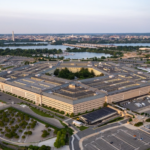
The NATO alliance is preparing for the NATO Information Assurance and Cyber Defense Symposium (NIAS) 2016 where over 1,000 alliance officials and industry representatives will meet to talk about emerging trends in cybersecurity.Set for Sept.7-8 in Mons, Belgium, the conference is being organized by the NATO Communications and Information (NCI) Agency.The NCI Agency highlighted the event will help NATO plan its vision for future cyber defenses with invitations and that bids are expected to be released in 2017 and the…

 By
By 











